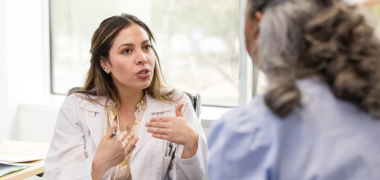
This role has a moderate level of AI exposure. AI can enhance efficiency for some tasks, but this job still relies on human skills and decision-making.
Explore all careersHospital Scientists conduct tests on samples to aid in diagnosing and treating patients, ensuring accurate results to support healthcare.
Get qualified to work as a Hospital Scientist with a course recognised across Australia. Speak to a training provider to learn more.






Browse occupations related to Hospital Scientist



If you're considering a career in the healthcare sector, specifically as a hospital scientist, Queensland offers a variety of excellent training options. With Griffith University and ACU, you have the chance to pursue quality Hospital Scientist courses in Queensland. These institutions are renowned for their commitment to science and healthcare education, ensuring you gain the knowledge and skills necessary for this vital role in the medical field.
A Hospital Scientist plays a crucial role in diagnosing and treating patients, working alongside medical professionals to analyse biological samples. This occupation opens up various pathways, including related positions such as Allied Health Assistant, Medical Imaging Assistant, and Pathology Assistant. Each of these roles contributes significantly to patient care and showcases the interconnected nature of the healthcare field.
Beyond just hospital scientists, the healthcare landscape in Queensland encompasses various sectors. You can explore Healthcare courses, delve into Pathology, or engage with Allied Health. Completing a Hospital Scientist course can be your gateway to specialisations such as Anaesthetist or even Phlebotomist, broadening your career horizons even further.
Whether you aim to work directly with patients or behind the scenes in a lab, pursuing Hospital Scientist courses in Queensland positions you favourably within the healthcare system. With robust training from established providers in the region, you're set to become a vital part of the healthcare team, contributing to essential medical advances and improving patient outcomes across Queensland and beyond.